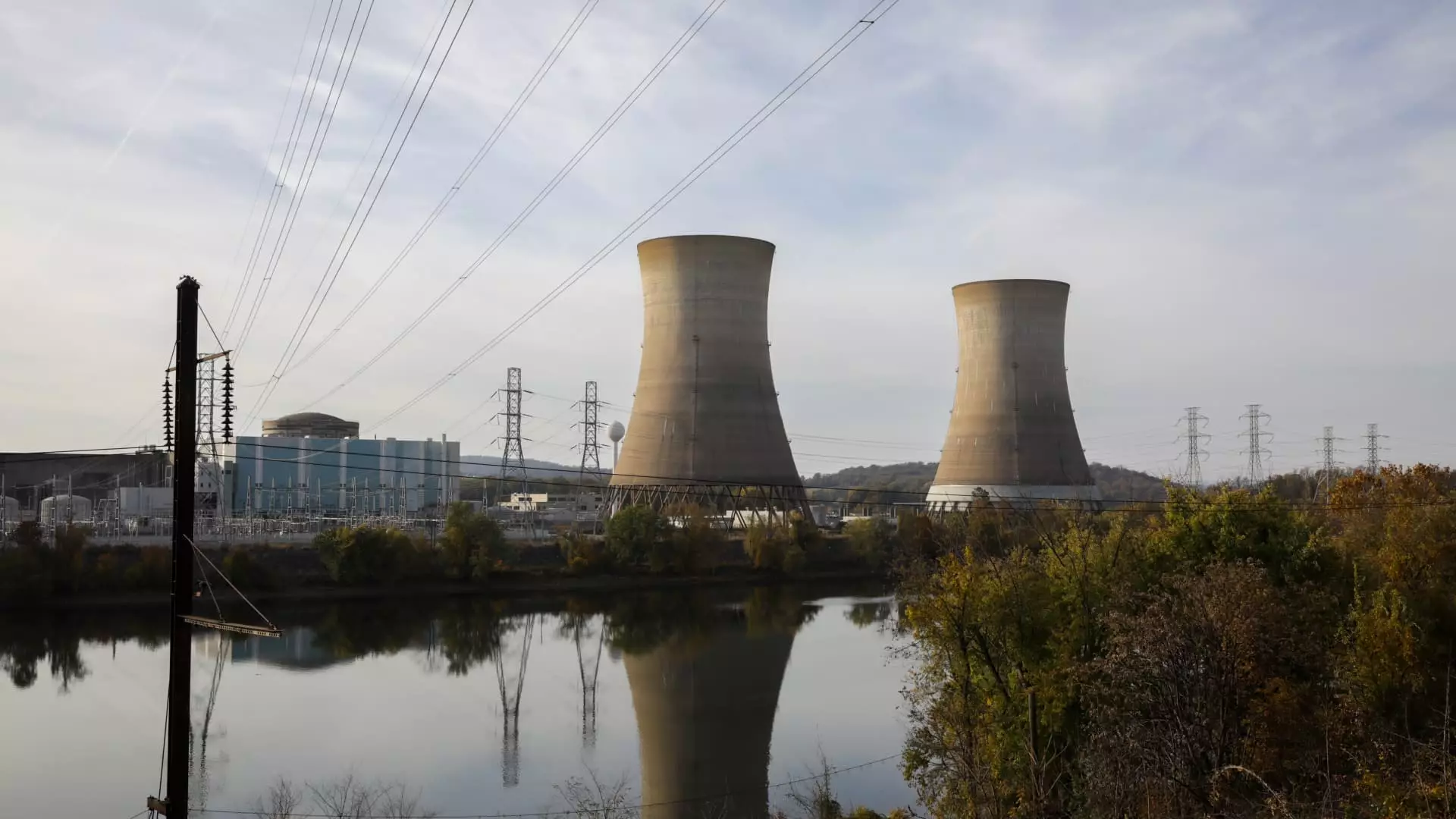The recent surge in artificial intelligence (AI) technology has opened up vast opportunities across different sectors, particularly in energy consumption. Data centers, which are critical for powering AI applications, have seen explosive growth due to the emerging demand for data processing and storage. However, this growth is intertwined with heightened scrutiny regarding their energy consumption, especially with new developments from abroad. The debut of China’s DeepSeek open-source AI laboratory has instigated a wave of skepticism about the energy requirements of AI applications, leading to sharp declines in the stocks of companies heavily involved in energy production.
On a particular Monday, a slew of power companies experienced significant stock drops, with Constellation Energy, Vistra Energy, GE Vernova, and Talen Energy witnessing declines of more than 15%. These firms had been riding high on the anticipation that AI data centers would demand increasing amounts of electricity as tech industries expand. The introduction of DeepSeek and its accompanying AI advancements compounded the investors’ fears regarding how much energy would actually be required for running these AI systems in the long term. The sentiment in the market shifted dramatically due to uncertainty about the energy consumption expectations that companies had previously made.
DeepSeek’s rapid ascent has been highlighted by its impressive AI models, particularly one tagged by Scale AI’s CEO Alexandr Wang as “earth-shattering.” Released on Christmas Day, DeepSeek has developed competitive AI capabilities that essentially challenge the status quo established by American counterparts like OpenAI. In a noteworthy benchmark, Wang remarked that DeepSeek’s output is now “roughly on par” with leading models from the U.S., prompting banks and analysts to reassess the landscape regarding American leadership in AI.
The ramifications of DeepSeek’s rise are multi-dimensional. Not only does it pose a direct threat to American AI dominance, but it also raises serious questions about the efficacy of U.S. cloud capital expenditures, chip production, and associated power needs. Bank of America analysts point out a pronounced skepticism around the energy requirements tied to the uplift in AI applications. This uncertainty has caused widespread turbulence in energy-related stocks as investors re-evaluate projected growth and energy demands related to data center operations.
Interestingly, firms like Constellation Energy have positioned themselves strategically to harness nuclear power as a reliable energy source. Their initiative to partner with Microsoft for the revival of the Three Mile Island nuclear plant underscores a growing trend among energy producers. The shift towards nuclear seems to be a rational and proactive approach for meeting anticipated data center demands, while still managing carbon footprints.
Moreover, the analysts from Bank of America emphasize that U.S. and European electric grids remain critically under-invested, posing a significant challenge in meeting anticipated power loads as more AI applications roll out. While many companies have been optimistic about AI’s role in propelling their business models, the actual infrastructure to support this demand could prove to be a bottleneck.
As AI technology continues to evolve, the need for advancements in energy infrastructure becomes increasingly salient. Power companies will not only have to acquire and generate energy but also ensure that their transport and distribution capabilities can handle surges in demand driven by data centers. Historical reliance on fossil fuels and traditional power generation models may not suffice, and there is an urgent requirement for investments in modernizing the grid across continents.
Ultimately, the future rests on the ability of power companies to adapt to a fast-changing landscape where AI-driven growth intersects with energy requirements. The emergence of competitors like DeepSeek serves as a reminder that innovation can disrupt established hierarchies, necessitating a shift in strategy for energy providers. It may soon be vital for these companies to rethink their energy supply and invest in more sustainable, efficient, and innovative technologies to stay relevant in an industry increasingly influenced by AI and data center demands. The ongoing narrative of power consumption tied to AI development is far from over, and stakeholders must remain agile to navigate this evolving terrain.

